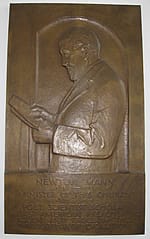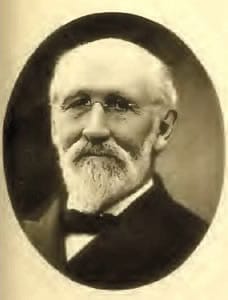First Unitarian Church of Omaha
Newton Mann
Reverend Newton Mann served First Unitarian of Omaha from 1889 to 1910, a period of growth in many ways. His significance to the denomination as a whole is based to a large extent on his having been the first minister of any denomination to accept and advocate from the pulpit Darwin’s theory of evolution. A sermon by Rev. Newton Mann titled “Of Science and Religion” has become part of the canon of significant Unitarian sermons alongside William Ellery Channing’s “Baltimore Sermon”, Emerson’s “Divinity School Address” and Theodore Parker’s “The Transient and the Permanent in Christianity.”
Rev. Mann's sermons were routinely published in the Omaha World-Herald, giving him a large audience for his liberal religious ideas. According to a 1929 Omaha World-Herald article, "His open acceptance of evolution caused a storm of protest from churchman, and he became the center of a national controversy."
His importance to our congregation goes beyond even his monumental role in shaping Unitarian thought and discourse. For instance, Mann wrote the “Bond of Union” in 1891 that serves as a “mission statement” which all new members are asked to sign. It is neither creedal nor doctrinal, but it states in clear terms the role of a liberal church for the congregation and the community as a whole.
In 1908, Rev. Mann’s wife, Eliza died. Rev. Mann married Rowena Morse in 1912 and died in 1926.
|



